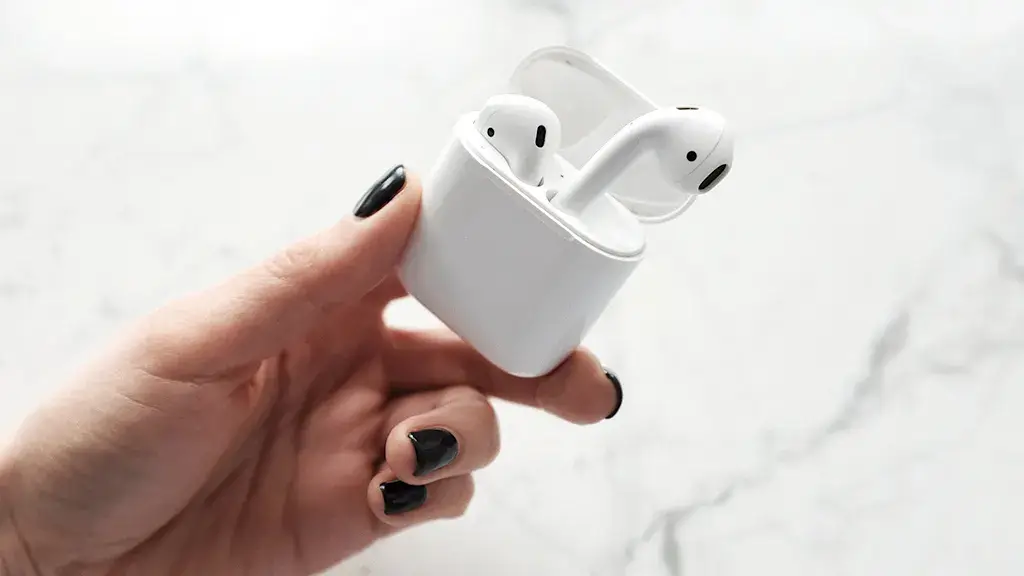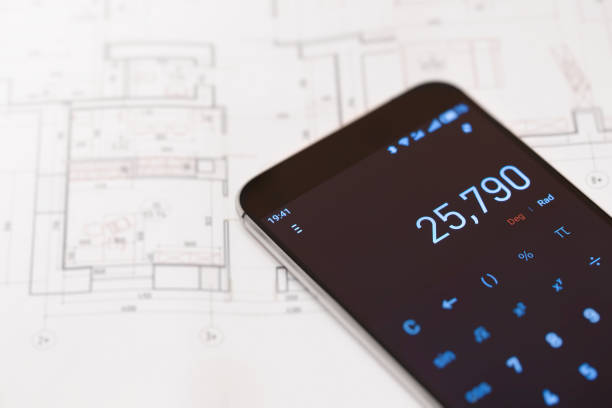blog
Ahegao – An In-Depth Look at the Popular Cultural Phenomenon
Published
6 hours agoon
By
adminAhegao has transformed from a niche expression in Japanese media to a global cultural trend. Let’s explore what makes this phenomenon so intriguing.
What Is Ahegao?
The Literal Meaning of Ahegao
Ahegao to “weird face” or “silly face” in Japanese. The term describes exaggerated facial expressions typically associated with characters in Japanese adult media. It’s characterized by crossed eyes, a wide-open mouth, and a flushed face to depict intense pleasure or emotion.
The term has become synonymous with an iconic aesthetic in specific niches of anime and manga, capturing the essence of over-the-top emotional expression.
Origins in Japanese Culture
Ahegao originated in the hentai (adult anime and manga) industry in Japan, where artists used these extreme facial expressions to enhance the comedic and exaggerated nature of their works. The playful, dramatic faces became a hallmark of the genre, attracting a dedicated following and inspiring countless variations over the years.
The Evolution of Ahegao in Pop Culture
Ahegao in Anime and Manga
Beyond hentai, ahegao has found a subtle presence in mainstream anime and manga. While toned down, exaggerated facial expressions appear frequently in comedic and romantic scenes, demonstrating its influence on broader Japanese entertainment.
Its Role in Hentai Media
Within the adult media industry, ahegao became iconic for conveying heightened emotion. The expressions aren’t just sexual; they emphasize absurdity, making them a signature style that separates the genre from other forms of entertainment.
How It Spread to Western Audiences
With the rise of anime fandoms in the West, niche elements like ahegao crossed cultural boundaries. Online communities, meme culture, and conventions like Anime Expo played a significant role in introducing Western audiences to the peculiar aesthetic.
Ahegao as a Meme and Internet Trend
The Transformation into Fashion Trends
One of the most surprising adaptations of ahegao has been its emergence in streetwear fashion. Ahegao-themed hoodies, shirts, and accessories feature collages of exaggerated expressions, gaining both popularity and controversy worldwide.
How Ahegao Became a Meme on Social Media
Social media platforms like TikTok, Instagram, and Twitter turned ahegao into a viral trend. Users mimicked the expressions for comedic purposes, with hashtags and challenges further boosting its visibility. The internet played a significant role in normalizing and mainstreaming what was once a niche concept.
Understanding the Controversy Around Ahegao
Cultural Misinterpretations and Criticisms
Many misunderstand ahegao as purely sexual or inappropriate, leading to cultural clashes. Critics argue that the aesthetic perpetuates certain stereotypes about anime culture, while fans defend it as lighthearted and harmless.
Is Ahegao Harmful or Harmless Fun?
Opinions vary widely. Some view it as empowering self-expression, while others criticize it for its origins in adult content. The debate continues, highlighting the complexities of adapting niche elements to a global stage.
The Impact of Ahegao on Modern Culture
Influence on Art and Fan Communities
Artists and fan creators often incorporate ahegao into their works, celebrating its dramatic and playful style. From digital illustrations to fan-made animations, the trend has sparked creativity across the globe.
The Role of Cosplay in Popularizing Ahegao
Cosplayers have embraced ahegao, using it to create memorable and humorous performances at conventions. It’s not uncommon to see fans donning ahegao-themed outfits or mimicking the iconic facial expressions in photo ops.
Ahegao in Fashion and Merchandise
The Rise of Ahegao-Themed Clothing
Ahegao-themed clothing has become a global phenomenon. The designs often mix humor, boldness, and a touch of shock value, making them a hit among younger audiences. However, they remain polarizing in mainstream fashion circles.
Criticisms and Acceptance in the Fashion World
While some praise the trend for its creativity and uniqueness, others criticize it for being inappropriate or offensive. The balance between artistic freedom and societal norms continues to fuel debates.
The Psychological and Social Implications of Ahegao
Is Ahegao Empowering or Objectifying?
The representation of ahegao sparks debates about gender, power, and agency. Supporters argue it allows for playful exploration of identity, while detractors raise concerns about objectification.
Discussions on Consent and Representation
Given its origins, ahegao raises questions about how media portrays relationships and consent. The broader discussion reflects ongoing conversations about responsible content creation and consumption.
How the Perception of Ahegao Differs Across Cultures
Ahegao in Japan vs. Western Countries
In Japan, ahegao is seen as an exaggerated artistic trope, while in Western countries, it’s often misunderstood or oversexualized. These differing perceptions highlight the challenges of cultural exchange in the digital age.
Globalization and the Adaptation of Niche Trends
The global spread of ahegao demonstrates how niche trends evolve when introduced to new audiences. While some aspects are preserved, others are reshaped to fit local tastes and sensibilities.
Legal and Ethical Concerns Surrounding Ahegao
Intellectual Property and Copyright Issues
With ahegao-themed products flooding the market, copyright disputes have emerged over the use of specific designs and characters. This has led to calls for clearer regulations in the industry.
Concerns About Age-Inappropriate Content
Given its origins, ahegao-related content sometimes straddles a fine line between artistic expression and inappropriateness. Stricter content guidelines aim to address these concerns while preserving creative freedom.
The Future of Ahegao in Popular Culture
Will Ahegao Continue to Grow?
As a dynamic cultural phenomenon, ahegao is likely to remain relevant as long as fans and creators find new ways to innovate and adapt it.
Could It Fade into Obscurity?
Trends come and go, and ahegao could eventually lose its appeal. However, its impact on meme culture and fashion suggests it will leave a lasting legacy.
Final Thoughts on the Ahegao Phenomenon
Ahegao is more than just an expression—it’s a cultural symbol that reflects the intersection of humor, art, and controversy. Whether you view it as empowering, problematic, or simply entertaining, there’s no denying its influence on modern culture. continue: webinvogue
FAQs
1. Is ahegao only associated with adult content?
Not necessarily. While it originated in hentai, ahegao has transcended its roots and appears in memes, fashion, and art.
2. Why is ahegao controversial?
Its origins in adult media and exaggerated expressions can lead to misunderstandings, especially in cultures unfamiliar with its context.
3. Are ahegao-themed clothes appropriate to wear in public?
Opinions vary. Some see them as bold fashion statements, while others view them as inappropriate. Context matters greatly.
4. Can ahegao be considered a form of art?
Yes, many artists use ahegao-inspired elements in their work to explore creativity and humor.
5. How do Japanese people view ahegao?
In Japan, ahegao is largely recognized as a humorous artistic trope, though opinions may differ depending on the individual.
You may like
blog
Photeeq Lens Flare: Master Stunning Effects for Your Photos
Published
1 day agoon
January 22, 2025By
admin
1. What is Photeeq Lens Flare?
Photeeq Lens Flare is an advanced software tool designed for photographers and designers to create realistic and artistic lens flare effects. Unlike basic photo editing software, it provides precision, customization, and an intuitive user interface. Whether you’re aiming for subtle light streaks or dramatic cinematic effects, Photeeq is the go-to choice for professionals and enthusiasts alike.
Key Highlights:
- Highly customizable effects.
- Realistic rendering of light interaction.
- Seamless integration with major editing platforms.
2. Why Lens Flare Matters in Photography
Lens flare isn’t just a random effect; it adds depth, drama, and emotion to an image. A well-placed lens flare can:
- Enhance Mood: Create warmth or tension.
- Add Depth: Highlight dynamic light interactions.
- Tell a Story: Direct the viewer’s focus and evoke emotions.
3. Features of Photeeq Lens Flare
Photeeq’s features set it apart from competitors. Here are its standout functionalities:
Realistic Effects
Photeeq uses advanced algorithms to mimic how light interacts with lenses in real life.
Customizable Settings
Control every aspect, from flare intensity to color gradients.
User-Friendly Interface
Designed with beginners and experts in mind, Photeeq is easy to navigate.
Lightweight and Fast
Even with complex effects, Photeeq ensures fast rendering without compromising quality.
4. How to Use Photeeq Lens Flare: A Step-by-Step Guide
Step 1: Install the Software
Download and install Photeeq from the official website. Ensure compatibility with your editing software.
Step 2: Import Your Photo
Open the image you want to edit. Photeeq supports formats like JPEG, PNG, and RAW.
Step 3: Choose Your Lens Flare Effect
Select from the built-in presets or customize your effect.
Step 4: Adjust Settings
Fine-tune the position, brightness, and color of the lens flare for the best results.
Step 5: Save and Export
Once satisfied, save your image in high resolution for print or digital use.
5. Tips for Creating Natural Lens Flare Effects
Shoot with Light in Mind
Lens flare effects look best when they align with the natural light source in your photo.
Use Subtlety
Overdoing lens flare can make an image look artificial. Strike a balance for a professional finish.
Blend Layers
If you’re using Photeeq with software like Photoshop, use layer masks to blend the flare seamlessly.
6. Photeeq vs. Competitors: Why It Stands Out
Photeeq outshines alternatives like Photoshop plugins or free online tools. Here’s why:
- Precision: Photeeq offers unmatched control over every aspect of lens flare.
- Efficiency: Fast rendering times save hours of editing.
- Realism: Advanced technology ensures effects look natural.
7. Best Scenarios for Using Photeeq Lens Flare
Photeeq excels in various scenarios:
- Landscape Photography: Add sunbursts for dramatic skies.
- Portraits: Introduce subtle light for a dreamy effect.
- Cinematic Projects: Create movie-like visuals effortlessly.
8. Common Mistakes to Avoid When Using Lens Flare
Overuse of Effects
A heavy-handed approach can distract from the main subject.
Ignoring Light Direction
Always align lens flare with the natural light source in your photo.
Using Low-Resolution Images
Photeeq works best with high-resolution photos for optimal results.
9. Photeeq Lens Flare: Compatibility and Requirements
Photeeq is compatible with major editing tools, including:
- Adobe Photoshop
- Lightroom
- CorelDRAW
10. Advanced Techniques for Professionals
Photeeq Lens Flare isn’t just for beginners—professionals can unlock its full potential by combining advanced techniques with its powerful features. Here’s how:
Layer Stacking for Enhanced Depth
Professionals often stack multiple lens flare layers to create a more nuanced and dynamic effect. By adjusting opacity and blending modes, you can control the intensity and texture of the flare.
Color Grading Integration
Pair your lens flare effects with color grading for a cinematic touch. Warm tones often work well with sunlight flares, while cool tones suit nighttime or futuristic effects.
Dynamic Animations
For video editors, Photeeq integrates seamlessly with motion graphics software. You can animate the flare to follow a light source dynamically, adding realism to video projects.
HDR Photography
Combining Photeeq Lens Flare with HDR (High Dynamic Range) photography can bring out details in highlights and shadows while incorporating the subtle charm of flares.
11. Integrating Photeeq with Popular Editing Tools
Photeeq Lens Flare works smoothly with various editing platforms, allowing you to expand your creative toolkit.
Adobe Photoshop
Photeeq comes with a Photoshop plugin that integrates directly into your workflow. You can:
- Apply flares to specific layers.
- Use layer masks for precise adjustments.
- Export in multiple formats without quality loss.
Lightroom
With Lightroom, you can use Photeeq as an external editor. This is particularly useful for photographers looking to enhance batch-processed images.
Video Editing Software
If you’re into videography, Photeeq’s effects can be exported as overlays compatible with tools like Adobe Premiere Pro and Final Cut Pro.
12. Testimonials and Success Stories
Amateur Photographers
Many hobbyists credit Photeeq for elevating their photography to professional levels. One user wrote, “Photeeq helped me add a cinematic quality to my landscapes effortlessly!”
Professional Designers
Graphic designers and digital artists rave about its ease of use. “Photeeq Lens Flare has become an essential part of my editing toolkit,” said a professional designer.
13. Cost and Licensing Options
Photeeq offers flexible pricing plans tailored to different needs:
- Free Trial: Explore basic features without commitment.
- Standard License: Ideal for hobbyists at $49/year.
- Professional License: For advanced users, priced at $99/year, includes premium features and updates.
Lifetime Plan
For those who prefer a one-time purchase, Photeeq offers a lifetime license for $199.
14. How to Download and Install Photeeq Lens Flare
Downloading and installing Photeeq Lens Flare is straightforward. Here’s how:
- Visit the Official Website Go to the Photeeq website to access the latest version.
- Select Your Plan Choose between a free trial or a paid plan.
- Download the Installer Once you’ve selected your plan, download the installer for your operating system.
- Follow the Setup Instructions Open the installer and follow the prompts to complete installation.
- Activate Your License Enter your license key to unlock premium features.
15. FAQs About Photeeq Lens Flare
Q1: Is Photeeq Lens Flare beginner-friendly?
Yes! The software is designed with an intuitive interface, making it suitable for both beginners and experts.
Q2: Can Photeeq be used for videos?
Absolutely! Photeeq effects can be exported as overlays for use in video editing software.
Q3: What platforms are compatible with Photeeq?
Photeeq works seamlessly with Windows and macOS systems and integrates with tools like Photoshop and Lightroom.
Q4: Does Photeeq offer a free trial?
Yes, a free trial is available to explore basic features before committing to a paid plan.
Q5: How does Photeeq compare to Photoshop plugins?
While Photoshop plugins are powerful, Photeeq offers more specialized control over lens flare effects with a user-friendly design.
Also Read: webinvogue
Conclusion
Photeeq Lens Flare is more than just an editing tool—it’s a gateway to unleashing your creativity. Whether you’re crafting dreamy portraits, breathtaking landscapes, or cinematic visuals, this software provides the tools to make your work shine. By combining ease of use with professional-grade features, Photeeq stands out as a must-have for photographers and designers.
Ready to take your photos to the next level? Download Photeeq Lens Flare today and start creating stunning visual masterpieces!
blog
Everything You Need to Know About Daylight Savings 2024: History, Dates & Effects
Published
2 days agoon
January 21, 2025By
admin
Daylight Savings Time (DST) is one of those topics that sparks debates and discussions worldwide. For 2024, the concept of “springing forward” and “falling back” once again impacts millions of people. Whether you’re new to DST or a seasoned clock-turner, this guide unpacks every detail you need to navigate Daylight Savings 2024 effectively.
What is Daylight Savings Time (DST)?
Daylight Savings Time is a practice where clocks are adjusted forward by one hour in spring and moved back by one hour in autumn. The goal? To make better use of daylight during the warmer months, ultimately saving energy and enhancing productivity.
Origins and Historical Context
The idea of DST is often attributed to Benjamin Franklin, who humorously suggested it in 1784 to save candle wax. However, the first formal implementation occurred during World War I to conserve fuel and resources. Over time, the practice has evolved, with countries adopting, modifying, or abandoning it based on their specific needs.
The History of Daylight Savings
When Did It Start?
DST was first widely used during World War I. Germany implemented it in 1916, and other nations soon followed. The concept re-emerged during World War II before becoming standardized in many regions.
Key Figures Behind DST
Prominent figures such as William Willett, an English builder, and Franklin contributed to the global conversation about saving daylight. Willett’s tireless advocacy led to Britain adopting DST in 1916.
Evolution Over the Years
From an energy-saving measure during wartime to a regular practice in peacetime, DST has gone through numerous legislative changes and public debates, particularly in the 20th and 21st centuries.
Daylight Savings 2024: Key Dates
Mark your calendars! In 2024, Daylight Savings will operate as follows:
- Start Date: Sunday, March 10, 2024, at 2:00 AM (clocks spring forward).
- End Date: Sunday, November 3, 2024, at 2:00 AM (clocks fall back).
Countries Observing DST in 2024
Approximately 70 countries worldwide will observe DST in 2024, including the United States, Canada, most of Europe, and parts of Australia. However, countries near the equator generally abstain due to minimal daylight variation.
Notable Exceptions and Changes
Regions like Arizona and Hawaii in the U.S. do not follow DST. Additionally, countries like Japan and China have completely abandoned the practice.
The Pros of Daylight Savings
1. Energy Savings
Historically, DST was introduced to reduce energy consumption by capitalizing on extended daylight hours.
2. Economic Benefits
Retailers and businesses often see a boost in revenue as consumers spend more time outdoors.
3. Increased Leisure Time
Longer daylight hours provide more opportunities for recreational activities, improving quality of life.
The Cons of Daylight Savings
1. Health Implications
Shifting clocks disrupts sleep patterns, leading to health issues like fatigue and insomnia.
2. Disrupted Schedules
Transportation, communication, and technology systems often face disruptions during the transition.
3. Impact on Productivity
The initial adjustment period can decrease workplace efficiency, costing businesses millions annually.
How Daylight Savings Works Globally
Regions That Observe DST
Daylight Savings is commonly practiced in North America, Europe, and parts of the Middle East and Oceania. In the U.S., it’s federally mandated, although states can opt out. Similarly, most European countries follow DST under the European Union guidelines, observing a synchronized start and end date.
Countries That Have Abandoned DST
Despite its benefits, many countries have eliminated DST due to its minimal impact on energy savings in modern times. Nations like Japan, China, and most of Africa have either never adopted it or discontinued it decades ago.
Cultural Variations
Some countries use DST creatively. For example, in Greenland, DST aligns with Europe, while parts of Australia observe it only in specific regions, such as New South Wales but not Queensland. These variations reflect the diversity in how DST fits into cultural and regional lifestyles.
The Science Behind DST
Impact on Circadian Rhythms
Our bodies rely on a natural circadian rhythm to regulate sleep, energy, and focus. DST disrupts this rhythm, causing temporary misalignment. Studies suggest that the one-hour shift can take several days for most people to adjust fully.
Research Studies and Findings
Scientific research highlights links between DST transitions and increased risks of heart attacks, strokes, and workplace accidents. While the changes are temporary, they underline the importance of planning ahead for smooth transitions.
Psychological Effects
For many, DST adjustments bring irritability, mood swings, and reduced concentration. The psychological toll is often minor but noticeable, particularly in individuals with pre-existing mental health conditions.
Debates Surrounding Daylight Savings
Arguments For and Against
Proponents argue that DST promotes outdoor activities, reduces energy use, and supports local economies. However, critics highlight its negligible energy benefits in modern settings, adverse health impacts, and the confusion it causes in global communication and travel.
Public Opinion in 2024
Public sentiment toward DST varies widely. A 2024 survey in the U.S. revealed that 63% of respondents favor eliminating the biannual clock changes, with many advocating for permanent standard time or daylight time.
Legislative Proposals for Change
Countries like the U.S. and EU are exploring permanent time settings. For instance, the U.S. Senate passed the Sunshine Protection Act to make DST permanent, but it awaits further approval.
How to Prepare for Daylight Savings 2024
Practical Tips for Spring and Fall Adjustments
- Gradual Sleep Adjustments: Begin shifting your bedtime by 15 minutes daily a week before the clock change.
- Limit Caffeine and Screen Time: Avoid stimulants and electronic devices close to bedtime.
- Optimize Your Bedroom Environment: Use blackout curtains, white noise machines, and comfortable bedding to promote quality sleep.
Managing Sleep Patterns
The key is consistency. Stick to your sleep schedule even during weekends and use light exposure to your advantage—natural light in the morning and dim lighting in the evening.
Tools to Help You Stay on Track
Smartphones and wearable devices often automatically adjust to DST, ensuring you stay on schedule. Apps like Sleep Cycle and reminders can also ease the transition.
Daylight Savings in the Digital Era
How Technology Adapts
Modern technology simplifies DST transitions. Smartphones, computers, and IoT devices automatically update, ensuring seamless integration into daily life.
Smart Clocks and Devices
Smart devices like Amazon Echo or Google Nest are DST-ready, adjusting clocks and alarms without manual intervention.
Digital Calendar Adjustments
Calendar apps like Google Calendar and Outlook reflect DST changes, minimizing scheduling errors. However, it’s always good to double-check for global meeting times.
Economic Implications of Daylight Savings
Impact on Businesses
Industries like retail and hospitality benefit from longer daylight hours, encouraging shopping and dining out. However, the tech sector and financial markets often face disruptions, particularly in cross-border transactions.
Tourism and Retail Effects
Daylight Savings encourages more outdoor activities, boosting revenue for parks, amusement centers, and travel businesses. This “light-driven economy” thrives in spring and summer months.
Hidden Costs of DST
The transition periods come with productivity losses and increased healthcare costs, as workers and students take longer to adapt to the new schedule.
The Environmental Perspective
Does DST Reduce Energy Use?
The original intent of DST was to save energy by maximizing daylight. However, studies show mixed results, with energy savings becoming less significant in modern societies with 24/7 electricity access.
Ecological Costs
DST may increase energy consumption during the mornings and lead to higher emissions due to extended evening activities like driving and shopping.
Sustainability Concerns
The environmental impact of DST is increasingly scrutinized. While it may benefit certain regions, its global effect on sustainability is negligible.
Daylight Savings and Modern Society
How It Impacts Schools and Workplaces
DST changes often disrupt school and workplace routines. Sleep-deprived individuals may experience reduced productivity, slower reflexes, and increased absenteeism during the adjustment period.
Adjustments in Healthcare Systems
Hospitals and emergency services must adapt to the clock change, particularly in managing shift schedules and time-sensitive medical procedures.
Relevance in a 24/7 World
In today’s globalized world, where businesses operate around the clock, the relevance of DST is often questioned. Flexible work schedules and advanced technology reduce its necessity.
Future of Daylight Savings
Global Trends
More countries are considering abolishing DST, citing its limited benefits. Movements toward permanent standard or daylight time are gaining momentum.
Permanent DST Movements
Countries like Russia and parts of the U.S. have proposed or implemented permanent DST, sparking debates on its pros and cons.
Predictions for 2030 and Beyond
Experts predict a shift toward global standardization of time zones, potentially phasing out DST altogether.
Conclusion
Daylight Savings Time 2024 continues to be a divisive topic. While it offers benefits like longer daylight hours and economic boosts, its drawbacks—ranging from health impacts to scheduling disruptions—cannot be ignored. As discussions around its relevance intensify, the future of DST remains uncertain. Whether it’s here to stay or fade away, understanding its nuances helps you navigate the changes with ease.
FAQs
1. What is the purpose of Daylight Savings?
Daylight Savings aims to maximize daylight during warmer months, conserving energy and encouraging outdoor activities.
2. Why do some countries not observe DST?
Countries near the equator or with minimal daylight variation find DST unnecessary and often abandon the practice.
3. Is Daylight Savings ending soon?
While there are legislative proposals to end DST in some regions, it remains uncertain when or if global adoption will occur.
4. How can I adjust my body clock to DST?
Gradually change your bedtime, avoid heavy meals before sleep, and expose yourself to natural light in the morning.
5. What are the economic benefits of DST?
DST supports retail and tourism industries by extending daylight hours, encouraging consumer spending and outdoor activities.
blog
How to Reset AirPods Pro: A Comprehensive Guide
Published
3 weeks agoon
January 4, 2025By
admin
Introduction
AirPods Pro, Apple’s premium wireless earbuds, are a game-changer in audio technology. With their active noise cancellation, superior sound quality, and seamless integration with Apple devices, they have become a favorite among tech enthusiasts. However, like any tech gadget, they aren’t immune to occasional hiccups. From connection issues to audio glitches, these problems can disrupt your listening experience. The good news? Resetting your AirPods Pro can often resolve these issues and restore them to optimal performance. In this guide, we’ll walk you through everything you need to know about resetting your AirPods Pro effectively.
Understanding When to Reset Your AirPods Pro
Common Issues That Require a Reset
Resetting your AirPods Pro is often the first troubleshooting step when things go wrong. But how do you know when it’s time for a reset? Let’s explore common problems:
1. Connection Problems
If your AirPods Pro keep disconnecting from your device or struggle to maintain a stable connection, a reset may help. Connectivity issues can stem from pairing glitches or interference from other devices.
2. Audio Glitches
Are you experiencing distorted sound, low volume, or interruptions? These audio issues might be due to software bugs or incorrect configurations.
3. Charging Issues
Sometimes, AirPods Pro may fail to charge properly or display inconsistent battery levels. A reset can help recalibrate the charging system and resolve these anomalies.
Benefits of Resetting AirPods Pro
Resetting your AirPods Pro is more than just a quick fix. Here’s why it’s beneficial:
- Improved Performance: A reset clears temporary files and glitches, ensuring smoother operation.
- Resolving Bugs: Persistent software bugs that don’t respond to other fixes can often be eliminated with a reset.
- Restoring Default Settings: If you’ve altered settings that led to performance degradation, a reset restores the original configuration.
Preparing to Reset AirPods Pro
Before diving into the reset process, a bit of preparation can save you time and ensure a seamless experience.
Checking Your AirPods Pro for Issues
1. Verifying Software Updates
Ensure your AirPods Pro and the connected device have the latest software updates. Firmware updates from Apple often address known bugs and improve performance.
2. Diagnosing Hardware Problems
Inspect your AirPods Pro for physical damage. Issues like damaged earbuds or a faulty charging case might require repairs rather than a reset.
Backing Up Necessary Data
1. Saving Custom Settings
If you’ve customized settings such as noise cancellation or sound profiles, make a note of them. Resetting will erase these preferences.
2. Ensuring Data Recovery After Reset
While AirPods Pro don’t store much data, resetting them removes pairing records. Ensure you know how to re-pair them with your devices.
Methods to Reset AirPods Pro
There are two main methods to reset AirPods Pro: a soft reset for minor issues and a factory reset for more persistent problems.
Soft Reset: Quick Fix for Minor Issues
Steps to Perform a Soft Reset
- Place both AirPods back in the charging case and close the lid.
- Wait for at least 30 seconds.
- Open the lid and reconnect the AirPods to your device.
When to Use a Soft Reset
This method is ideal for resolving minor glitches, like audio delays or temporary connectivity issues.
Factory Reset: Restoring to Default Settings
Detailed Step-by-Step Process
- Place your AirPods Pro in their charging case and keep the lid open.
- Press and hold the setup button on the back of the case until the status light flashes amber, then white.
- Release the button. Your AirPods Pro are now reset to factory settings.
Situations That Require a Factory Reset
- Persistent issues that aren’t resolved with a soft reset
- Preparing your AirPods Pro for sale or gifting
Troubleshooting Reset Failures
Common Problems During Reset
Resetting doesn’t always go smoothly. Here are some hiccups you might encounter:
- AirPods Not Responding: Your AirPods don’t flash the status light as expected.
- Error Messages on Paired Devices: Your device might display errors during the re-pairing process.
Solutions to Reset Failures
Repeating the Process
Sometimes, simply repeating the reset process can solve the issue. Ensure the charging case has sufficient battery.
Contacting Apple Support
If reset attempts fail, it’s time to reach out to Apple Support. They can diagnose deeper hardware or software problems.
Maintaining AirPods Pro After a Reset
Once your AirPods Pro are successfully reset, taking a few additional steps ensures they operate at their best.
Re-pairing AirPods with Devices
Resetting AirPods Pro removes all previous pairings. You’ll need to reconnect them to your devices.
Pairing with iPhone or iPad
- Open the AirPods Pro case near your iPhone or iPad.
- Wait for the setup animation to appear on your device screen.
- Tap Connect and follow the on-screen instructions to complete the pairing process.
Pairing with Android Devices
- Open the charging case lid.
- Press and hold the setup button until the status light blinks white.
- Go to your Android device’s Bluetooth settings and select AirPods Pro from the list of available devices.
Configuring Settings for Optimal Performance
After reconnecting, take time to personalize your AirPods Pro settings:
Adjusting Sound Preferences
Access the settings on your iPhone or iPad:
- Go to Settings > Bluetooth and tap the “i” icon next to your AirPods.
- Configure noise cancellation, transparency mode, and volume settings.
Enabling Noise Cancellation
Activate noise cancellation for an immersive audio experience:
- On your iPhone, swipe down to access the Control Center.
- Press and hold the volume slider.
- Toggle between Noise Cancellation, Transparency Mode, or Off.
Alternative Solutions to Resetting
Sometimes, a reset might not be necessary. Here are alternative ways to address common AirPods Pro problems:
Software Updates and Repairs
Keeping Firmware Updated
AirPods Pro firmware updates can resolve many bugs without needing a reset. Ensure your AirPods are connected to your device and charging to allow automatic updates.
When to Consider Professional Repairs
If your AirPods Pro have physical damage or persistent problems that resets can’t fix, visit an Apple Store or authorized repair center. Repairs might be covered under warranty or AppleCare+.
Cleaning and Maintaining AirPods Pro
Regular Cleaning Practices
Dirt and debris can interfere with audio quality and charging. Clean your AirPods Pro regularly using:
- A soft, lint-free cloth for the exterior.
- A dry cotton swab for the speaker grilles.
- Avoid using liquids or abrasive cleaners.
Protecting AirPods from Damage
Invest in protective cases and avoid exposing your AirPods Pro to extreme temperatures or moisture.
Frequently Asked Questions (FAQs)
1. Why Won’t My AirPods Pro Reset?
If your AirPods Pro fail to reset:
- Ensure the charging case has enough battery.
- Verify you’re holding the setup button long enough.
- Check for physical damage or contact Apple Support.
2. How Often Should I Reset My AirPods Pro?
Resetting isn’t something you need to do often. Only reset your AirPods Pro when troubleshooting persistent issues or before selling them.
3. Can I Reset AirPods Pro Without an iPhone?
Yes, the reset process doesn’t require an iPhone. You can reset AirPods Pro using the setup button on the charging case and then pair them with any device.
4. What Happens After Resetting AirPods Pro?
Resetting erases all paired devices and restores the AirPods to factory settings. You’ll need to re-pair them and configure settings again.
5. Will Resetting AirPods Pro Delete Data?
AirPods Pro don’t store significant data, so there’s no real data loss. However, custom configurations like sound settings and pairing records will be removed.
Conclusion
Resetting your AirPods Pro is a simple yet effective way to resolve common issues like connectivity glitches, audio problems, or charging inconsistencies. Whether you perform a soft reset for quick fixes or a factory reset for more persistent problems, the process is straightforward and hassle-free. By maintaining and updating your AirPods Pro, you can extend their lifespan and enjoy a seamless audio experience.
If resetting doesn’t resolve the problem, explore alternatives like software updates or professional repairs. With these steps, your AirPods Pro can continue to deliver the premium performance Apple promises.
Ahegao – An In-Depth Look at the Popular Cultural Phenomenon

Photeeq Lens Flare: Master Stunning Effects for Your Photos

Everything You Need to Know About Daylight Savings 2024: History, Dates & Effects

Get your Canadian visa in a jiffy – Hong Kong citizens can now apply online!
BiharMasti: The Place to Download Bhojpuri Movies and Music

How do MEP Services help contractors?
Trending
-

 Business2 years ago
Business2 years agoGet your Canadian visa in a jiffy – Hong Kong citizens can now apply online!
-

 Tips & Tricks2 years ago
Tips & Tricks2 years agoBiharMasti: The Place to Download Bhojpuri Movies and Music
-

 Business2 years ago
Business2 years agoHow do MEP Services help contractors?
-

 Law2 years ago
Law2 years agoWhat states have no chase law for motorcycles
-

 Business2 years ago
Business2 years agoEverything You Need to Know About SQM Club
-

 Technology2 years ago
Technology2 years agoHow to do Jio Prepaid Recharge Online
-

 Game1 year ago
Game1 year agoOvertime Megan Leaks: Understanding the Controversy
-

 Politics2 years ago
Politics2 years ago6 Ideas You Can Steal from Election Results

